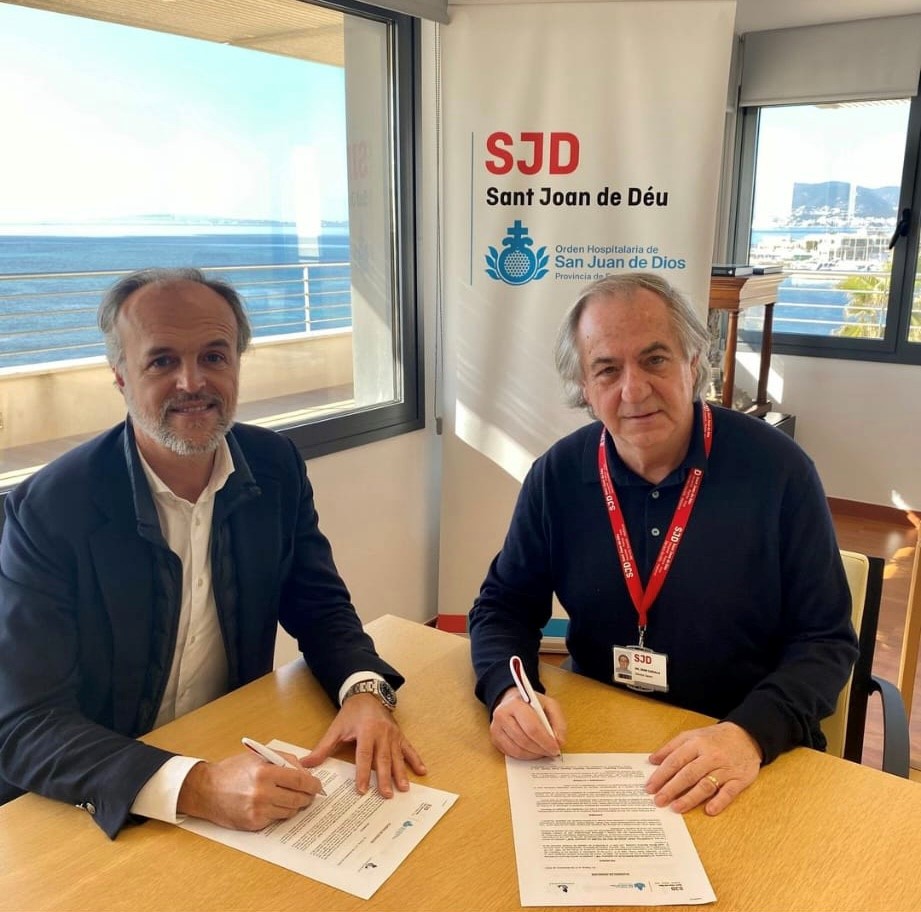The Barceló Foundation has signed an agreement with the Hospital Sant Joan de Déu Palma-Inca for the acquisition and donation of a transcranial magnetic stimulator, a tool that will allow a better response to the diagnostic and treatment needs of the group of people who suffer from sudden brain damage. Sudden brain damage can be caused by different causes, among which are head injuries, brain tumors and, more frequently, strokes.
The incidence of stroke in our autonomous community is estimated at 1,790 new cases per year, of which 1,500 require hospitalization. A stroke consists of the sudden interruption of cerebral blood circulation, either by clogging of an artery (infarction) or by a rupture of it (hemorrhage), so that the brain tissue in the affected area dies. This circumstance supposes the appearance of some sequelae that oscillate from a slight affectation to very disabling situations. The most frequent are the loss of motor, cognitive and intellectual functions, character changes, loss of speech and vision disturbances. All this conditions a loss of quality of life of the person who suffers it and their families.
Although it is known that the structural alterations of the brain are, today, irreversible and that there is still no effective treatment for neurodegenerative diseases, intervention with Neurorehabilitation programs is essential to recover the maximum functional level and personal autonomy. Transcranial electrical stimulation is a technique that allows the safe and non-invasive induction of a current in the brain. It allows, among other things, the mapping of brain functions since it is capable of activating or interfering with brain functions. It also makes it possible to establish causal relationships between brain activity and behavior and, therefore, optimize the treatment of symptoms derived from brain injury. It has been shown that, applied repetitively, TMS is capable of modulating brain activity in the affected cortical region of the brain, beyond the duration of its stimulation.
Currently, TMS is applied in the field of sudden brain damage (stroke, head trauma), but also in other processes such as chronic pain, major depression, anxiety disorders, epilepsy and essential tremor, and is being investigated in other areas such as Parkinson’s disease, cognitive decline and dementia.
The signing was attended by the managing director of SJD Palma-Inca, Joan Carulla, and the general director of the Barceló Foundation, José María Navarro.

